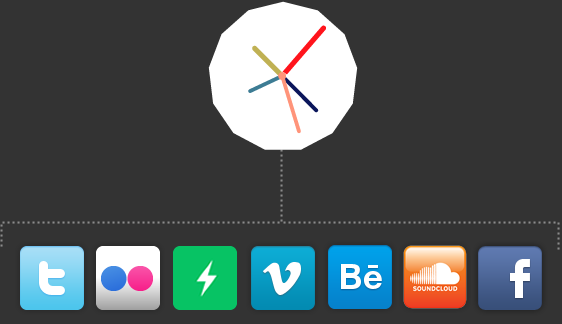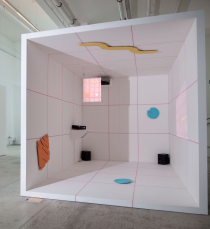‘People Talk’ – An Introduction to Coworking
by John Gibb at Edinburgh screenWORKS
In the spirit of shared ideas and collaboration I’m going to borrow an analogy from software developer Brad Neuberg, the founding father of the coworking space. People everywhere go to bars. But they don’t talk to each other. Strangers stand around drinking their drinks, and they don’t talk to each other. People also go to house parties. But house parties are different. You might know one or two people there, or you might be faced with a roomful of strangers, but either way, people talk to each other. “People talk”, says Brad, “because of a shared context.” Shared context is what coworking space is all about.
Around the turn of the millennium, many modern workplaces underwent a strange new development: they no longer became necessary. For many professionals working in IT, software development, and digital media, the affordability of home computers and increased internet speeds made a day at the office a thing of the past. Who wants to schlep across town on public transport when you can work from home in your pants? While that may seem like a no-brainer, in reality the latter option proves not without its problems. For a start, the line between work and personal life becomes blurred and you’re faced with constant distractions while you are working, and constant reminders of work when you aren’t. Your house can cease to become a home. Then there is the lack of motivation; without the structure of the 9 to 5 many are prone to idle. But perhaps worst of all is the feeling of isolation. Your contacts dry up, you receive no input from co-workers, and you can end up feeling detached from the industry as a whole.
The alternative then, is to put your trousers on and get back out there. But if, like Brad, you don’t belong to any particular company then where do you go? The advent of the affordable laptop presented another option: the coffee-shop. Again, this is hardly ideal. You’re constantly buying food or beverages to justify your presence. You have to take your laptop with you every time you go to the bathroom. But also, you’re still lacking a sense of community, which is all the more depressing now, since ironically, you are working amidst a sea of people just like you. As Brad says, “coffee shops are just like bars.” In 2005, he came up with a solution to this predicament by renting space in a building and inventing a new word which would spawn an entire movement: coworking (no hyphen).
A coworking space functions similarly to the shared studio spaces long favoured by artists. More intimate than a coffee shop, it provides an office without the trappings of office life, and at a reasonable price too (coworks are often not-for-profits). People can come and go as they like, work, share ideas, and meet like-minded individuals. Built upon the values of collaboration, openness, community, accessibility and sustainability; it offers freelancers the opportunity to work independently, together. In short, everything that is beneficial about working for a company – social interaction, structure, access to free tea and biscuits – without actually working for a company. It offers users that shared context.
Coming into a coworking space to develop your projects tends to bring structure to your day and help motivate you to get things done. Being surrounded by people of like-mind, and having the encouragement and insight of others can only be a good thing too. Plus, there’s really no better way of finding new opportunities than to engage with as many people in your industry as you can.
It’s not surprising then, that coworking has taken off in such a big way. What is surprising though, is that what started out as a very tech-based work method has crossed over into so many different fields. The Hat Factory, one of the first coworks set up in San Francisco in 2006, played host to mainly software developers and code writers like Brad. Now there exist coworking spaces for a whole range of specific industries, such as paragraph, a New York-based cowork, designed “by writers for writers”. At the same time, there are ones which offer an eclectic mix of people like IndyHall in Philadelphia, which states itself to be for “designers, developers, writers, artists, entrepreneurs, scientists, educators, small business owners, telecommuters, marketers, videographers, game developers, and more”. It’s not just limited to the States either. To name but a few, there’s Bureaux in Melbourne, Raum betahaus in Berlin, and a flourishing coworking scene here in Britain, with locations such as THECUBE in London and The Hub in Bristol opening up all the time.
Edinburgh screenWORKS is a co-working space in the Fountainbridge area of Edinburgh, for those working in the screen and digital media industries. It provides quiet desk space, super fast wireless, locker storage, a postal address, free printing and a function room that can be booked for business meetings, etc. you can pay by the day or month and everything is covered even down to your free biscuits, tea and coffee. You just sign up for the time you need and get working. Check out our website for more info and get in touch to find out more and book a free trial day.
///////////////////////////
SPECIAL OFFER: Sign up for July and get all of August COMPLETELY FREE. Yes, it’s silly season at screenWORKS and the glorious sun has made us very generous.
Simply mention our ‘FREE MONTH CENTRAL STATION OFFER’ when you get in touch and you can sign up, claim your free month and get working. small print: Limited availability. 1 free month offer per person only.
/////////////////////////














Comments